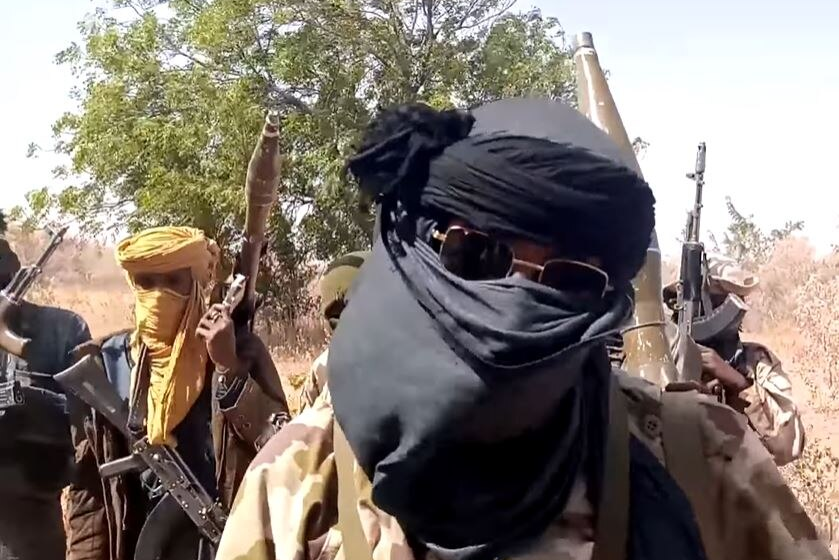How Benue state became epi-center of farmers-herders clash

Nigerian bandits. Photo Credit- Wikipedia
Benue State has emerged as a critical hotspot for farmer-herder clashes in Nigeria due to a confluence of historical, environmental, geographical, socio-political, and economic factors. Currently, the recent tragic attack reported on June 13-14, 2025, where approximately 200 people were killed, underscores the urgency of understanding this complex issue. This piece is set to explore the key reasons behind Benue’s status as a flashpoint, drawing from historical context, current trends, and related data.
Geographical and agricultural significance
Benue State, often called the “Food Basket of the Nation,” lies in Nigeria’s Middle Belt, a transitional zone between the arid north and the forested south. Its fertile plains along the Benue River and its tributaries support intensive farming, making it a prime agricultural region for crops like yam, cassava, and rice. This abundance attracts both farmers and herders seeking grazing land, creating inevitable competition. The state is a natural corridor for the seasonal migration of Fulani herders, who move southward with their cattle from the Sahel region during the dry season (November to March). This migration overlaps with farming cycles, leading to frequent land-use conflicts as herders encroach on cultivated fields.
Environmental pressures and climate change
The northward expansion of the Sahara Desert has degraded pasturelands in northern Nigeria, pushing Fulani herders southward into the Middle Belt, including Benue. A 2019 ScienceDirect study on farmer-herder conflicts highlights how climate change-induced droughts and shrinking grazing areas force herders to seek greener pastures, often clashing with sedentary farmers.Population Pressure: Rapid population growth in Benue has intensified land use, reducing available fallow land for grazing. The state’s population, estimated at over 5 million (per 2006 census projections), has increased demand for arable land, exacerbating tensions with nomadic herders.
RELATED STORIES
Benue killings: Police use tear gas to disperse protesters demanding action
Ethnic and religious dimensions
Diverse Ethnic Composition: Benue is predominantly inhabited by Tiv, Idoma, and Igede ethnic groups, who are mostly Christian farmers. The influx of Muslim Fulani herders has added an ethnic and religious layer to the conflict. While the root cause is land, these differences have fueled perceptions of cultural invasion, as noted in a 2009 Citizenship Studies article on indigeneity in northern Nigeria. Past incidents, such as the 2016 Agatu attacks where hundreds were killed, have entrenched mistrust. The ethnic profiling of Fulani as aggressors, despite some being victims of banditry themselves, has deepened the divide.
Weak governance and policy failures
Traditional mechanisms for resolving land disputes, once managed by community leaders, have weakened due to colonial legacies and modern governance structures. The 2020 LandLinks report emphasizes that weak tenure systems and poor resource governance perpetuate these clashes. In addition, in 2017, Benue State passed the Open Grazing Prohibition and Ranches Establishment Law, banning open grazing to protect farmlands. While intended to curb herder incursions, it was poorly enforced and met with resistance from herder groups, escalating tensions. The law’s implementation has been sporadic, with recent attacks suggesting a lack of state capacity or political will. The state’s political landscape, dominated by figures like former Governor Samuel Ortom (PDP) and current Governor Hyacinth Alia (APC), has seen the conflict politicized. Allegations of complicity or inaction, as seen in X posts criticizing Governor Alia and President Tinubu, reflect a governance vacuum, with leaders from Benue holding key federal roles yet failing to stem the violence.
Escalation of violence and arms proliferation
The availability of small arms, a legacy of Nigeria’s broader insecurity (e.g., Boko Haram), has transformed disputes into deadly clashes. The 2018 Amnesty International report, “Harvest of Death,” documented how herders and farmers increasingly arm themselves, turning localized disputes into massacres.Banditry Overlap: Recent attacks, including the June 2025 incident, may involve not just herders but also criminal elements exploiting the chaos. The Wikipedia entry on herder-farmer conflicts notes how banditry in the region has blurred the lines, with raids and kidnappings compounding the violence.
Historical context and precedents
Conflicts date back decades, with significant spikes in the 2000s as democracy returned and land pressures grew. The 2016 Nimbo massacre in Enugu and the 2018 Plateau attacks (over 200 killed) set a precedent for Benue’s current crisis, where reprisals and counter-reprisals have become cyclical.Displacement and Vulnerability: The targeting of internally displaced persons (IDPs) in the latest attack aligns with patterns where vulnerable populations, often sheltered in missions or camps, become easy targets, as seen in the 2018 church attack in Benue that killed 19.
RELATED STORIES
Benue killings: Pope Leo calls attacks “terrible massacre”, prays for victims
NFIU: Nigeria’s abduction crisis and failed governance
Current implications and the June 2025 attack
The June 13-14, 2025, attack, reported by Vanguard Newspapers, where about 200 people, many IDPs at a Catholic mission, were killed, exemplifies how these factors converge. The delay in a robust government response, as criticized on social media by figures like Peter Obi and the president’s eventual directive on June 15, 2025, highlights ongoing governance challenges. The involvement of displaced persons suggests a humanitarian crisis, with over 2,000 displaced in Plateau State alone in April 2025 (NEMA), a trend likely similar in Benue.
Conclusion
Benue’s status as a hot zone for farmer-herder clashes stems from its fertile lands attracting competing land users, exacerbated by climate-induced migration, ethnic-religious tensions, weak governance, and militarized violence. The recent attack underscores the need for a multi-faceted approach: enforcing anti-grazing laws, strengthening tenure systems, addressing climate adaptation (e.g., irrigation projects), and fostering dialogue between communities. Without decisive action, the cycle of violence, now claiming lives at rates surpassing some international conflicts, will persist, as the Middle Belt remains a crucible of Nigeria’s broader security crisis.

